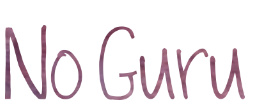There’s a lively debate going on at Plum about whether or not fashion advertising should be ‘aspirational’ or ‘real’ or some component of both.
‘Aspirational’ advertising presents something people will long for, something they would like to do or have, or even someone they might like to be. The results are pictures of ‘ideal’ women. Taken to the extreme, it can be interpreted as the ‘perfect body’ type, the photoshopped, elongated, chopped, airbrushed and fictionalized pictures we see in fashion magazines and advertisements that bombard us daily. It can create a feeling that we have shortcomings and that we ought to be doing something differently. This type of advertising suggests that if we only buy this or that product we’ll miraculously be saved... unfortunately it often works. The beauty industry is a multi-billion dollar industry that has been profiting on these kinds of messages for years. It is what we have become accustomed to so it is difficult for advertisers to abandon those ‘aspirations’ for something more ‘real.’
‘Real’ advertising, such as the popular Dove Campaign for Real Beauty emphasizes diverse body types, diverse racial representation and advocates for fewer photoshopped images in ads for beauty products and fashion. This type of ‘real’ advertising is more about making people feel good about themselves and showing that a particular product isn’t restricted to a particular kind of person or designed to make you into anything other than who you are.
We love that we have a diverse client base at Plum, from fashionistas to functional dressers and we do our best to accommodate as many of them as we can in our stores.
We use professional models on our website and in our emails because it is what women are used to seeing and because the models are trained professionals. But we do not alter bodies in our images. We do remove blemishes and alter images as needed to remove wrinkles from fabric or slight imperfections in the images, smoothing out the edges. We feel that fashion can be aspirational, artistic and expressive and that everyone should be able to enjoy what it can do for them as individuals.
We have invested in a new training program for our staff so they can help individual customers more effectively. They have learned about colour, body, wardrobing, personal style and lifestyles. Let us know what you think by commenting below – what do you love seeing in fashion advertising? Aspiration or real or both?


